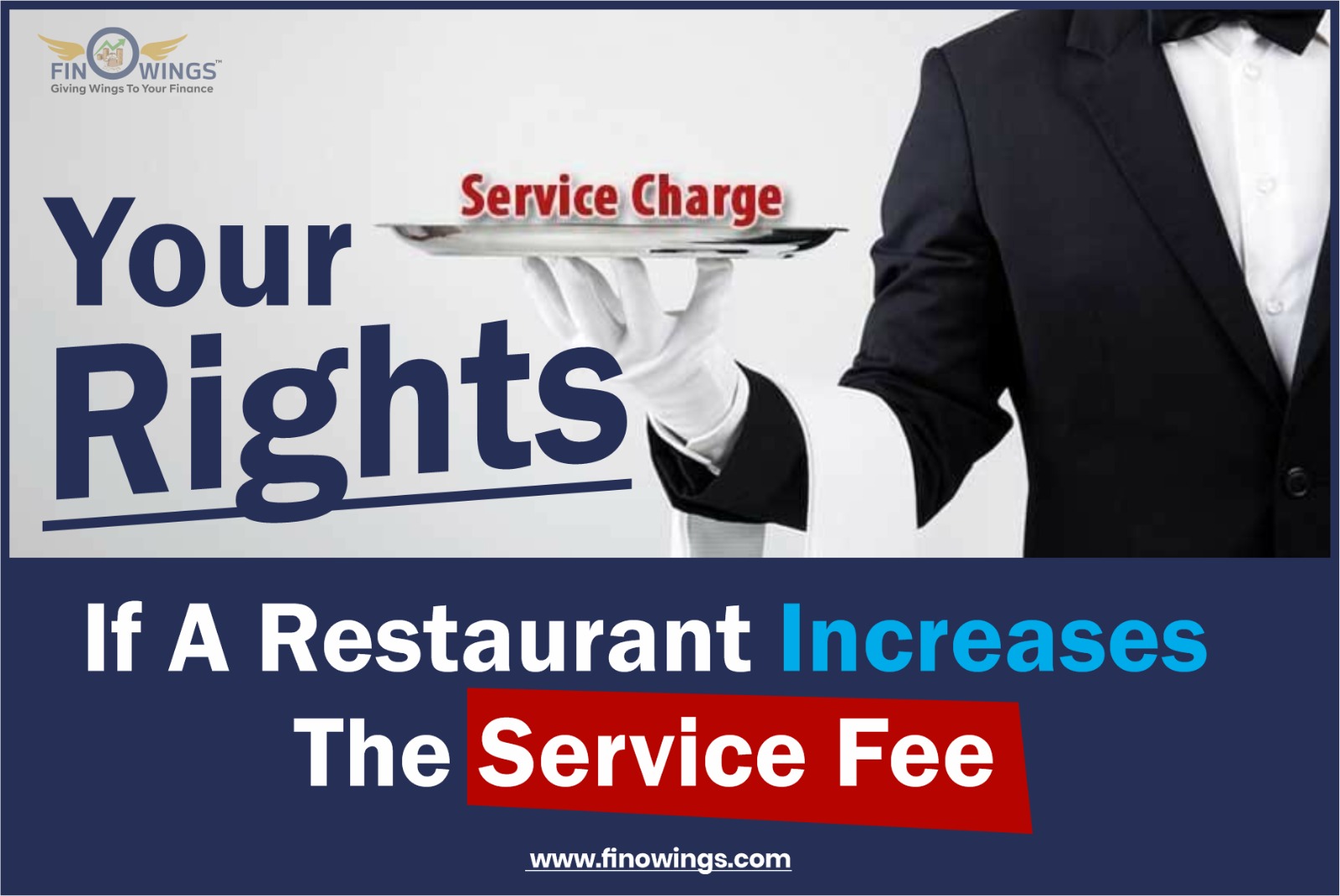Home >> Blog >> Your rights if a restaurant increases the service fee
Your rights if a restaurant increases the service fee

Table of Contents
- What is the service charge?
- Why do restaurants charge service charges?
- The CCPA released service fee guidelines to safeguard consumer rights
- Providing solutions to customers
- The next step after a complaint
- Why did the CCPA release these guidelines?
- The court proceedings
- Hotel and restaurant reviews: What are they saying?
Even though adding a service charge is optional, many hotels and restaurants do so without telling the guests. Many hotels assert that guests accept paying the service charge as soon as they place their order, even when they object to it. In response to multiple complaints from various consumers, the Central Consumer Protection Agency (CCPA) released recommendations on July 4, 2022, prohibiting hotels and restaurants from automatically applying these rates (service charges).
What is the service charge?
A service charge is a gratuity or a cash payment made directly by the customer to the wait staff. It's a charge made to cover the cost of extra services provided in conjunction with the purchase of a main good or service. At the time of the transaction, the fees are applied. The hospitality, food, and beverage industries collect service charges as payment for serving customers.
Why do restaurants charge service charges?
There are several reasons why restaurants charge a service fee for larger reservations.
To cover employee costs, restaurants add a service charge to customers' bills in establishments where waiting staff are unable to receive tips, which includes banquet halls or buffets, to make sure they can pay staff the minimum tipped wage required by law in their state.
The CCPA released service fee guidelines to safeguard consumer rights
-
There shouldn't be a default addition of service fees at hotels and restaurants.
-
No, a hotel or restaurant cannot compel a customer to pay a service fee.
-
Consumers cannot be subjected to constraints on the availability of services based on service charges. The service charge cannot be added to the food bill and GST is applied to the entire amount.
-
No service charge should be unlawfully charged, such as by including it in the price of the meal or the GST.
-
No hotel or restaurant may automatically add a service charge to the bill.
-
Service fees may not be billed to customers under any other name.
Providing solutions to customers
The following solutions are available to customers who discover that their hotel or restaurant is charging service fees or breaking their rules:
-
First, they can request that the hotel remove the service fees from the final bill.
-
The National Consumer Helpline (NCH) app and the 1915 number are both available for consumer complaints. At the pre-litigation level, the NCH functions as a substitute dispute resolution mechanism.
-
If neither method works, consumers can file a complaint about unfair trade practices through consumer consumption.
-
Using the e-daakhil portal, complaints can be submitted online (www.edaakhil.nic.in). Additionally, complaints may be sent via email to CCPA at com-ccpa@nic.in.
The next step after a complaint
If the CCPA concludes that a breach has occurred, it may issue the following order after providing the opposite party with a chance to be heard pursuant to Section 20 of the Act:
-
Refund customers for arbitrary service charges.
-
Put an end to unfair practices that hurt consumer interests.
Why did the CCPA release these guidelines?
The CCPA released the recommendations in response to many complaints about restaurants and motels automatically imposing service costs without telling or asking consumers.
The official statement from the ministry stated, "The issues raised by consumers include restaurants making service charge compulsory and adding it in the bill by default, suppressing that paying such charge is optional and voluntary and embarrassing consumers in case they resist paying service charge,"
The minister of food and consumer affairs, Piyush Goyal, had previously declared that the practice of charging service fees was "unfair" and that the ministry would soon release a legal framework to prevent it. Following a meeting held by the Department of Consumer Affairs with representatives of restaurant associations and consumers, Rohit Kumar, the department's secretary for consumer affairs, stated that the government believes that the practice of charging service fees violates consumers' rights and constitutes an "unfair trade practice" as well.
The court proceedings
By ruling dated July 20, 2022, the Delhi High Court suspended the service charge regime until November 25. The court decided that it was necessary to take into account the issue of pricing and whether or not service fee charges were covered by section 2(47) of the CCPA. The court decided that restaurants should not add service fees to takeout orders and that the proposed service fee should be prominently displayed alongside the price and applicable taxes as part of its conditional approval of the stay.
The stay was granted with the requirements that restaurants refrain from adding a service fee to any take-out orders and make sure that the service fees they intend to impose on top of the prices and taxes required are clearly displayed.
The High Court will hear the CCPA's appeal, which was filed because it was upset by the stay and is scheduled to be heard on August 31, 2022.
Hotel and restaurant reviews: What are they saying?
Hoteliers and restaurant owners have reacted differently to the decision. Despite the fact that the order was applauded by P C Rao, head of the Bruhat Bengaluru Hoteliers Association (BBHA), the National Hotels Association of India informed DH that they would seek legal advice regarding the regulations.
The industry has fiercely resisted the guidelines, even though consumers have accepted them as expected. Even if it is implemented, it is impossible to predict whether hotels and restaurants won't raise their prices as a result.
Frequently Asked Questions
No hotel or restaurant may demand a customer to pay a service charge, and they must expressly inform them that doing so is voluntary, optional, and up to the customer's discretion. Consumers should not be subject to any entry restrictions or service provision limitations based on the collection of service fees.
Customers can ask restaurants to remove the service charge if it is still included in the bill, even though the government has issued guidelines to prevent unfair trade practices and the violation of consumer rights regarding the levying of the fee in hotels and restaurants.
Service charges are typically reported as non-tip wages given to the employee. Some employers retain a percentage of the service fees. Non-tip wages only apply to the sums given to the workers. All cash tips must be reported by employees to their employers.
The service charge, which is typically 10 to 12.5%, is optional and perfectly "legal." In the event that you do not like a particular service, you may request that it be removed from the bill.
Call 1915 or use the NCH mobile app to file a complaint against the restaurant or hotel on behalf of the customer. Fair business practices complaints will also be accepted by the Consumer Commission.



















